When it comes to water treatment solutions, water softeners, and water conditioners are the two frequent terms that are quite often thrown at us. But, have you ever wondered about the difference between a water conditioner and a water softener? Are they the same, or do they belong to different water treatment options?
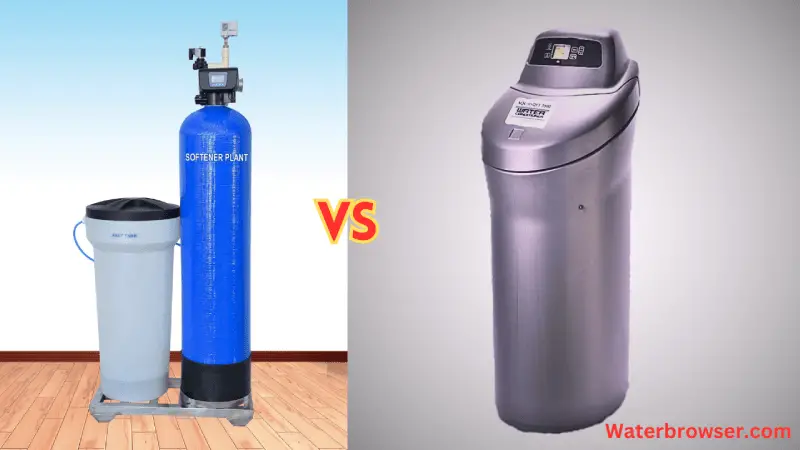
Water softeners and water conditioners are two types of water treatment options. Both of them are used to treat the water and make it suitable for drinking or other applications. Water softeners are used for removing the minerals from the water, and water conditioners are used for changing the chemical properties of water.
Why Do We Need A Water Conditioner or Water Softener?
We need to condition or soften the water if you find the water hardness is over the permissible limit. Water hardness can have a severe impact on your body, business, and even home. The significant impact that hard water can have is the scaling. This can damage the utensils and electrical appliances. Scaling can also affect your plumbing and damage it. That is precisely why you need a water softener or a water conditioner.
Water conditioners and water softeners are basically used for improving the quality of water that comes to your home or any other establishment. Water softeners can help you eliminate the hardness of water, and help you dissolve the lime scale build-up. Water conditioners, on the other hand, allow you to remove algae and dirt from the water. They also help you alter the chemistry of the water. Water conditioner does not remove minerals from water but changes how they behave.
Water conditioner vs Water softener – The Similarities
Both water softeners and water conditioners are used for treating water. They undertake these tasks with different functionalities. They help prevent scale formation and reduce the level of hardness of the water.
The similarities between a water softener and a water conditioner would include:
- Both water softeners and water conditioners are used for solving the issues of hard water.
- Both of them can reduce the build-up of lime scale and water hardness damage to appliances and plumbing.
- Both have similar costs.
As we have found from our experience, both water softeners and water conditioners help solve the problems associated with hard water. Hard water contains chemicals such as calcium, magnesium, and silica, which have been known to be the root cause of all the issues associated with hard water.
| Aspect | Water Conditioner | Water Softener |
|---|---|---|
| Purpose | Both used for treating hard water issues. | Both used for treating hard water issues. |
| Scale Prevention | Help prevent scale formation. | Help prevent scale formation. |
| Reduction of Water Hardness | Both can reduce water hardness levels. | Both can reduce water hardness levels. |
| Cost | Similar costs. | Similar costs. |
What Is The Difference Between A Water Softener and Water Conditioner?
The major difference between a water conditioner and a water softener lies in how they handle hard water. A water softener removes minerals like calcium and magnesium from water – leaving behind just a residue of these chemicals. Water conditions, on the other hand, change the way these chemicals behave. They do not remove the chemicals but stop them from causing issues with plumbing or electrical appliances.
The primary differences between a water conditioner and water softener can be summed up as:
- Water softeners remove the hardness of water altogether, thereby improving the quality of water. Water conditioners change the quality of water, but not entirely comprehensively.
- Water conditioners retain the chemicals and minerals that are good for your body but prevent them from causing issues such as scale built up and corrosion.
| Aspect | Water Conditioner | Water Softener |
|---|---|---|
| Treatment Approach | Changes how minerals behave but retain them. | Removes minerals from water. |
| Chemical Removal | Removes unwanted chemicals (e.g., chlorine, VOCs). | Primarily focused on removing hardness minerals (e.g., calcium, magnesium). |
| Sodium Content | Does not add sodium to water. | Adds a small amount of sodium to the water. |
| Electrical and Drainage Requirements | Generally does not require an electrical line or drainage. | Requires an electrical line and drainage. |
| Salt Usage | Typically does not use salt or brine. | Requires periodic addition of salt to regenerate the resin. |
| Regulations | May be a preferred option in areas with brine restrictions. | Some cities may have restrictions on salt discharge. |
Water Softeners – An overview
Let us check out what are water softeners and how a water softening system works. Water softeners are the most common water treatment systems used in commercial and residential setups. The water softeners generally use processes like reverse osmosis and ion exchange to soften the water. At the basic level of a water softener system, the ion exchange method removes the minerals causing hardness and replaces them with sodium ions.
How Does Water Softener Work?
A water softener consists of two tanks. The primary tank has resin beads that have sodium ions. The secondary tank consists of a salty solution to help regenerate the beads when they get saturated. The water flows through the resin beads in the primary tank, and the ion exchange process removes the mineral ions, such as calcium, magnesium, etc, with the sodium ions. This softened water passes through your plumbing system and is used in your everyday tasks. When the resin beads get saturated, a regeneration cycle makes the salty water flow through the resin beads and enriches them with sodium ions once again. The water from the secondary tank is drained out.
Water Conditioners – An Overview
Most of the water conditioners are salt-free systems. Water conditioners are typically used for removing chemicals such as chlorine, chloramines, volatile organic compounds (VOCs), and organic gasses. They are also used for removing lead from water.
How Does Water Conditioner Work?
That would largely depend on the type of water conditioner. Some water conditioners simply filter out the unwanted elements from the water. Some others alter the structure of the minerals so that they are retailed but do not affect the plumbing or appliances. Some water conditioners use Electrically induced precipitation. Some others may use electrochemical water treatment. Some other techniques used for conditioning the water would include Template-assisted crystallization and magnetic water treatment.
Types of Water Conditioners
Water conditioners are available in different methods or ways of functionality. Depending on the method used for conditioning or treating the water, they are classified under several types here below:
- Magnetism-based water conditioners: These conditioners have magnets in the system. These magnets will affect the way the ions in your water will behave when you pass the hard water through a magnetic field. While we have several magnet-based water conditioners, they are actually controversial in nature, and there is no scientific proof to assure that the system actually works.
- Electromagnetism-based water conditioners: The method used is similar to the magnetic water conditioners. The only difference is that you use electricity to introduce the magnetic effect. The method has the same downsides as the magnetism based systems.
- Electrolysis-based water conditioners: This method uses metal electrodes immersed in water. They release zinc ions in the water, which attract the metal ions. The method uses electrical current to precipitate water molecules. The process ends when the zinc is dissolved completely. This method is quite effective, but you do not know when the zinc has dissolved. You will never come to know that the conditioning has stopped until you begin to feel the effects of hard water.
- Template-Assisted Crystallization: Also known as TAC, this method uses the resin beads as a catalytic nucleation site to convert the minerals into a stable crystalline form. Unlike the water softeners, this method does not need regeneration.
- Electrical induction water conditioners: This method uses electricity to precipitate the molecules in the water.
What is Water Descaler?
A water descaler is a system or method that helps reduce the effect of hard water. The method uses the magnetic field to charge the mineral particles in the water. In fact, a water descaler is a type of water conditioner. The magnetic effect used in the water descaler will help you in making the mineral particles stay in water instead of sticking to surfaces like your bathtub, shower wall or sink.
Water descalers use several technologies to reduce the effects of hard water. Some of these methods would include
- A low voltage current is passed through the water to create an electronic charge in the water, thereby holding the water and stopping it from sticking to pipes.
- A magnetic device is used to change the structure of the minerals in your water.
- Template-assisted crystallisation technique can help create mineral crystals.
Water Softener vs Water Conditioner – Which One is Right For You?
If you are struggling to make a choice between water softener or conditioner, it would be advisable to compare the features of both systems and decide on the right option. Both systems have high-end features that let you treat the hard water quite effectively.
Water softeners can be helpful in the following ways:
- Remove the hard minerals from your water
- Softened water will have a small amount of sodium
- You will need an electrical line and a drainage line
- You will need to add salt periodically to the system
The water conditioner can have the following features:
- It removes the chlorine, chloramines, Volatile Organic Compounds (VOCs) and other undesired contaminants in water as it passes through the medium.
- It is energy efficient and does not require a drain line
- It does not require brine or salt
- They alter the chemicals to improve the quality of water.
Some cities may have restrictions on the use of water softeners. That would mean you cannot drain the salt solutions. If you live in an area that has brine restrictions, you can decide to choose air conditioners.
The Concluding Thoughts
Both water softeners and water conditioners are designed to be the best water treatment options. However, what you use would be based on the exact requirements that you may have. Finding the right systems for your needs can be the right step in the right direction.
There is no one answer to this question. You can make a choice based on your budget, the hardness level of water in your area, and which among them is best suited for your needs. Check whether you want water softener or water conditioner, and choose the right one after due research.

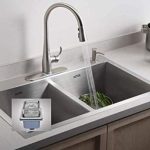
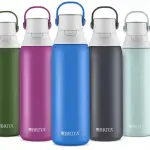
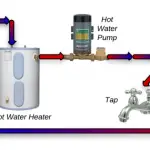
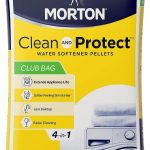
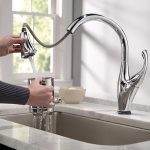
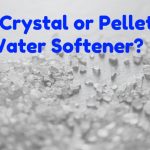




Add Comment